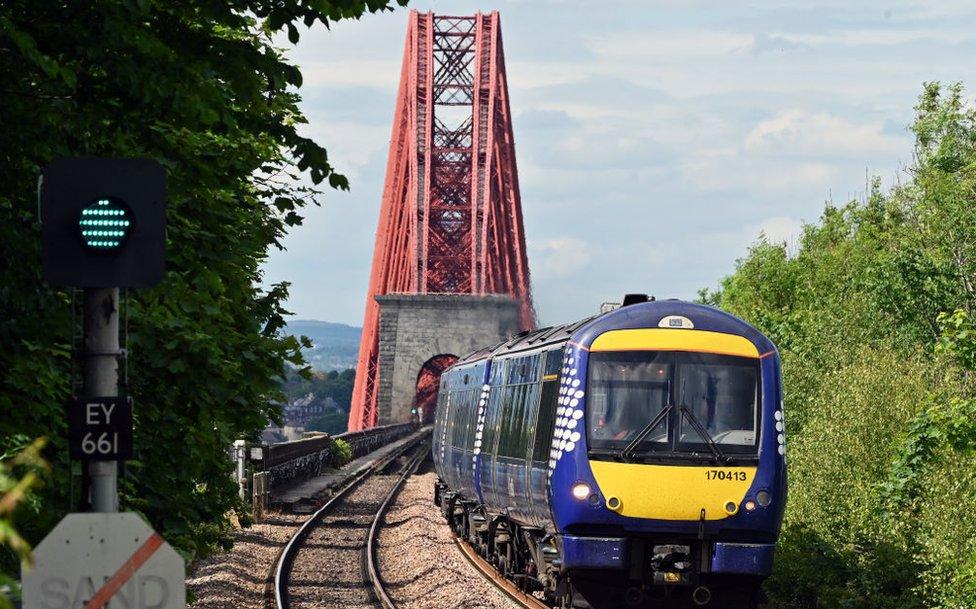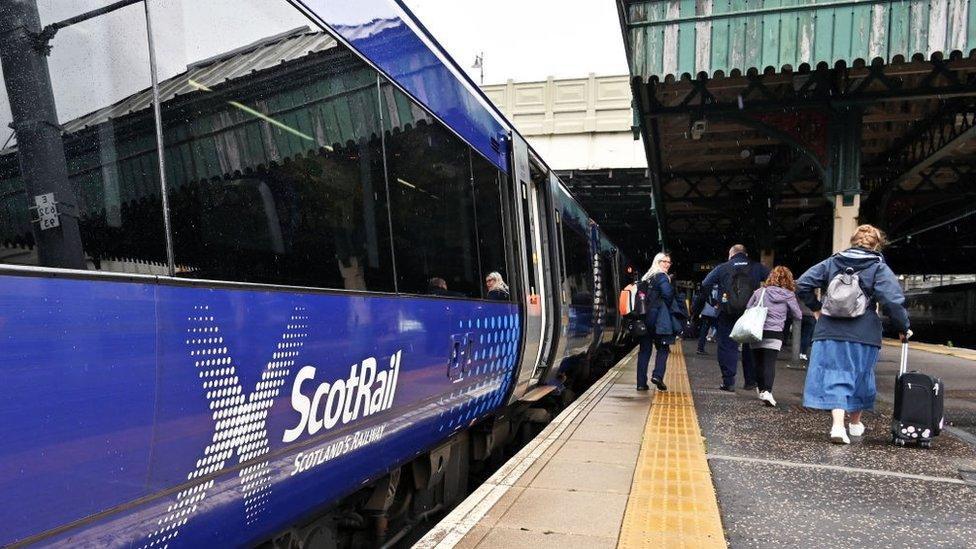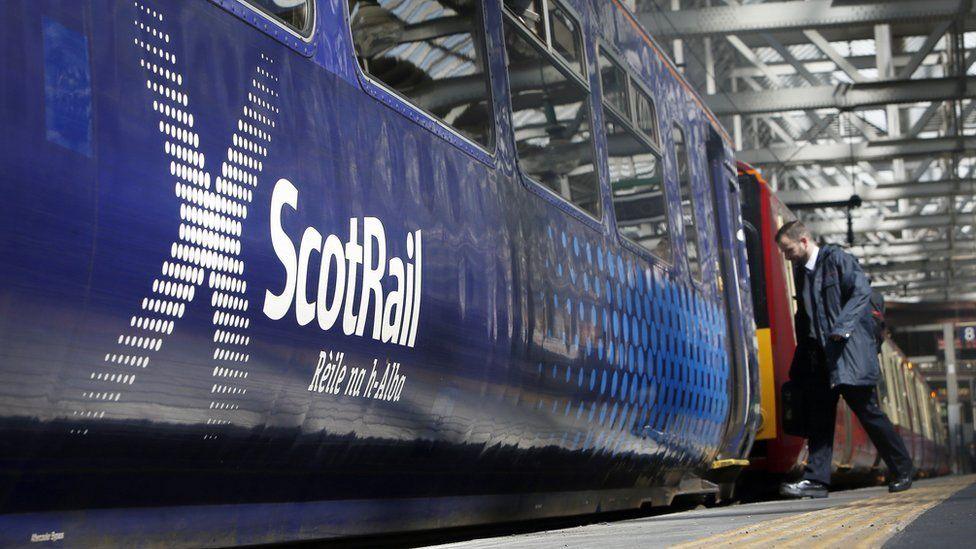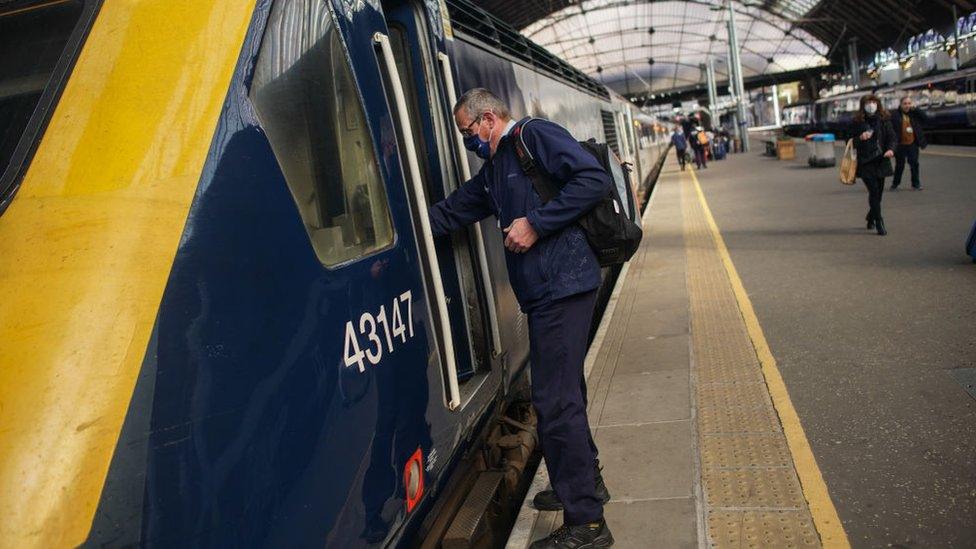ScotRail 'frustrated' by three-day impact of UK strikes
- Published
- comments

ScotRail has described the three-day impact of daily strikes by RMT members working for Network Rail as "very frustrating".
More than 40,000 rail workers across the UK will stage the first of a latest series of 24-hour strikes on Wednesday.
The walkout by staff at Network Rail and 14 train operating companies is part of a row over pay and jobs.
The dispute does not involve ScotRail staff, but will mean less than 9% of normal services will operate.
They will be focused on five routes in the central belt, with no service on all other routes.
The rail operator has also warned that journeys will be affected on the days before and after strike action.
It comes just a week after ScotRail services returned to normal following the resolution of a dispute with its own train drivers.
ScotRail operations director David Simpson told the BBC Radio's Good Morning Scotland programme that he hoped to see a positive outcome to talks between the RMT and Network Rail "for the good of the industry" and its customers.
He said: "We are unable to operate the majority of our services, except a small number of routes across the central belt, because the signallers will be on strike and they are critical to operating the trains.
"There's a small number of alterations to services late this evening. Tomorrow will be a service of just five routes across the central belt and then there will be a later start-up of services on Thursday because of the opening times of the signal boxes.
"So, the disruption will spread over three days with the majority tomorrow. But the advice is to check your journey - particularly for Thursday morning because of the later start-up on some routes."

Only five routes in the central belt will be running on Wednesday
Wednesday's walkout is due to be followed by further strikes on Thursday 18 August and Saturday 20 August.
ScotRail said the railway will only be operational between 07:30 and 18:30 on strike days.
The services that will run are:
Edinburgh - Glasgow via Falkirk High: Two trains per hour
Edinburgh - Bathgate: Two trains per hour
Glasgow - Hamilton/Larkhall: Two trains per hour
Glasgow - Lanark: Two trains per hour
Edinburgh - Glasgow via Shotts: One train per hour
Final services will depart well before 18:30, and customers are being urged to plan ahead to ensure they know when their last train will run.
David Simpson said limited cover for striking Network Rail staff meant they had no option but to drastically cut services.
Railway stations were virtually deserted when similar strike action was called in June.
Mr Simpson said: "It has been a fairly stable pattern over the last three similar disputes and we want to focus on what we can do reliably during this industrial action so the customers know what they can use across the network on those days.
"It's about 190 [services] out of a normal 2,100 - that's just under 9% and a very small proportion of what we have operated since the timetable stepped back to normal last Wednesday.
"That is very frustrating considering how well things have been running since we were able to get back to normal."
He added: "We know that talks are continuing to take place between the RMT and Network Rail and we all hope to see a solution to those for the good of the industry.
"But we're very much dependent on that being resolved. If they are not resolved, we can expect a vey similar service to today."
Cost of living
The RMT dispute centres around whether workers, including guards, signallers, catering staff and cleaners, will receive pay rises to keep up with the sharply rising cost of living.
But the railway workers' union has also highlighted proposed changes to pension schemes, working practices, and what it says is insufficient general funding for the transport system.
Network Rail has accused the RMT of walking away from "ongoing and constructive talks".
The Scottish government has urged the UK government to intervene to help bring the dispute to an end.
Scotland's transport minister Jenny Gilruth called on her Westminster counterpart Grant Shapps to instruct Network Rail to negotiate constructively with the unions.
She said: "Resolution for staff and passengers is possible, but it will require both political will and focus."
The UK government has called on the union to end the industrial action.
Related topics
- Published25 July 2022

- Published9 May 2024

- Published9 June 2022
